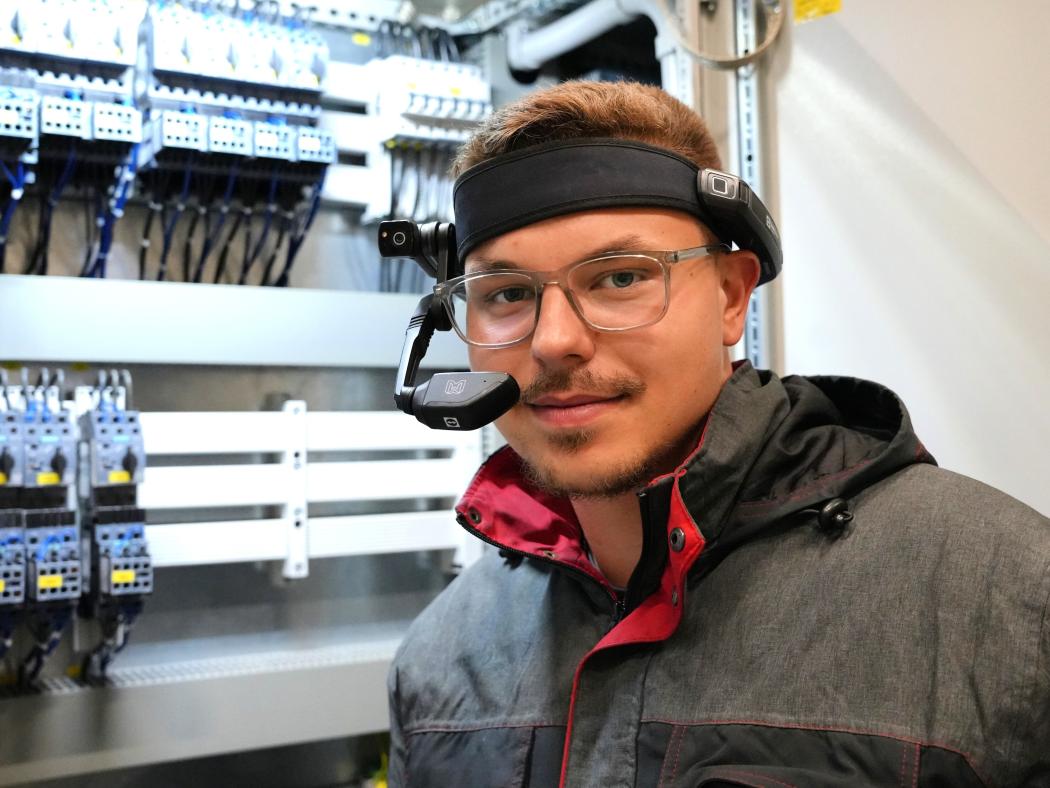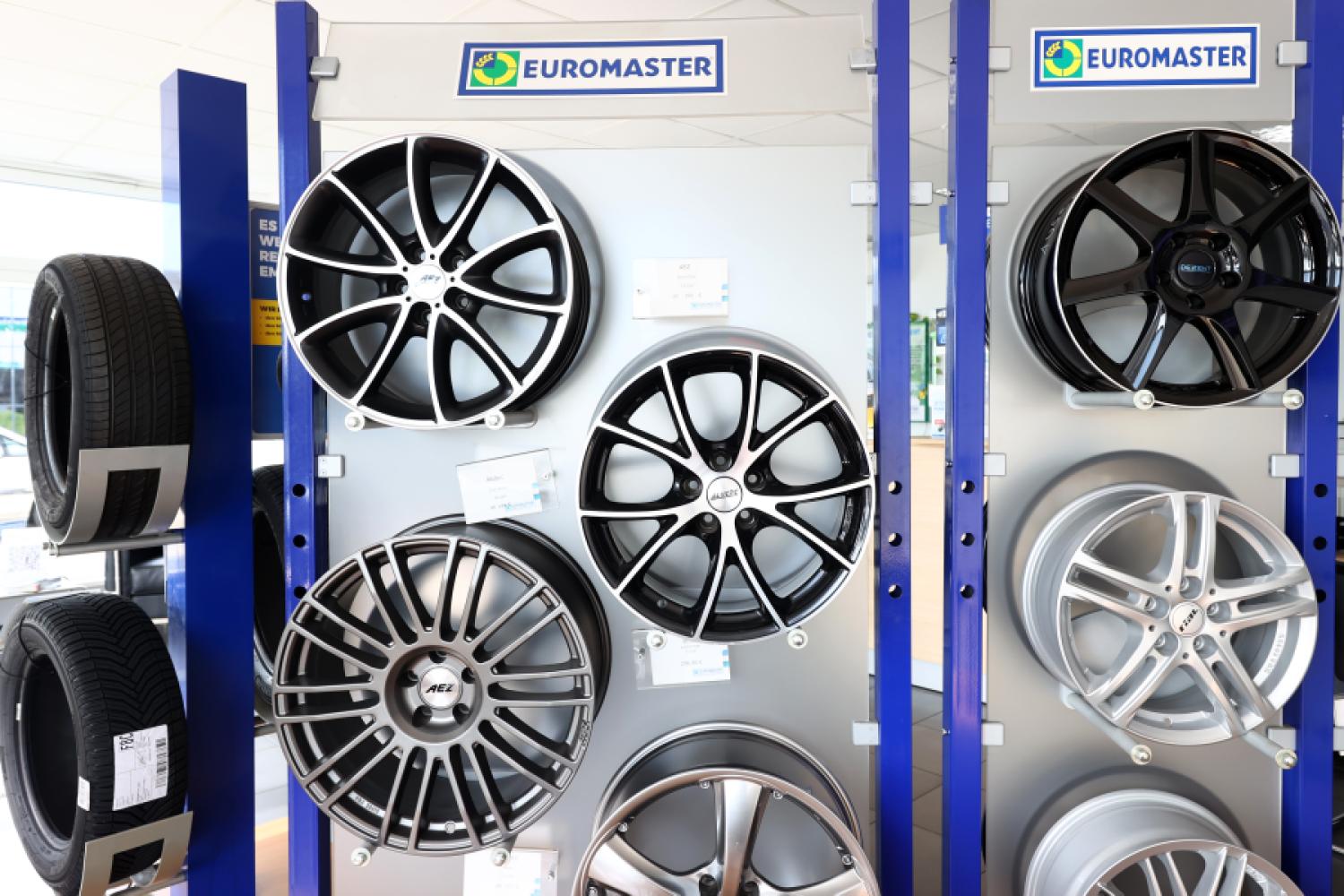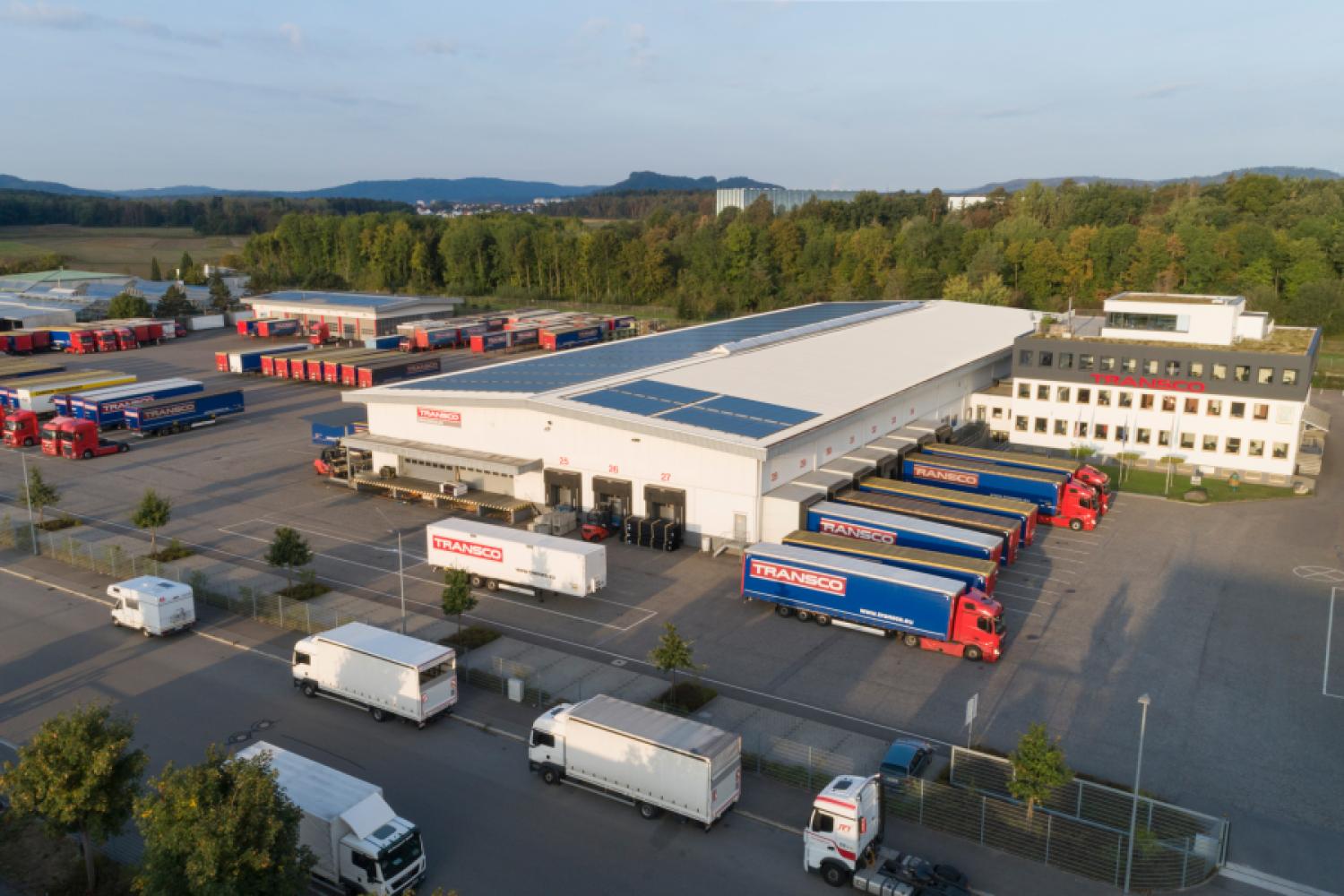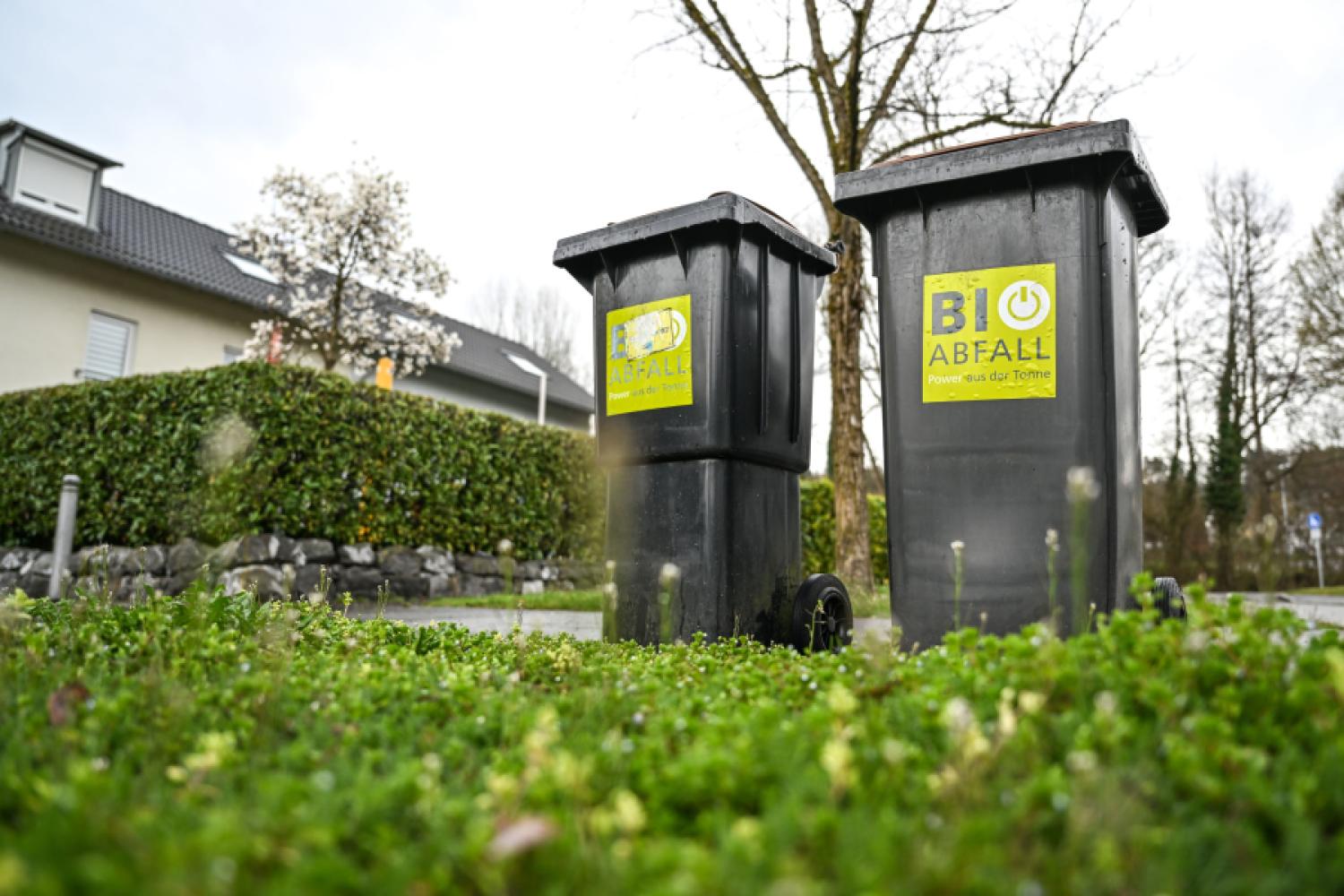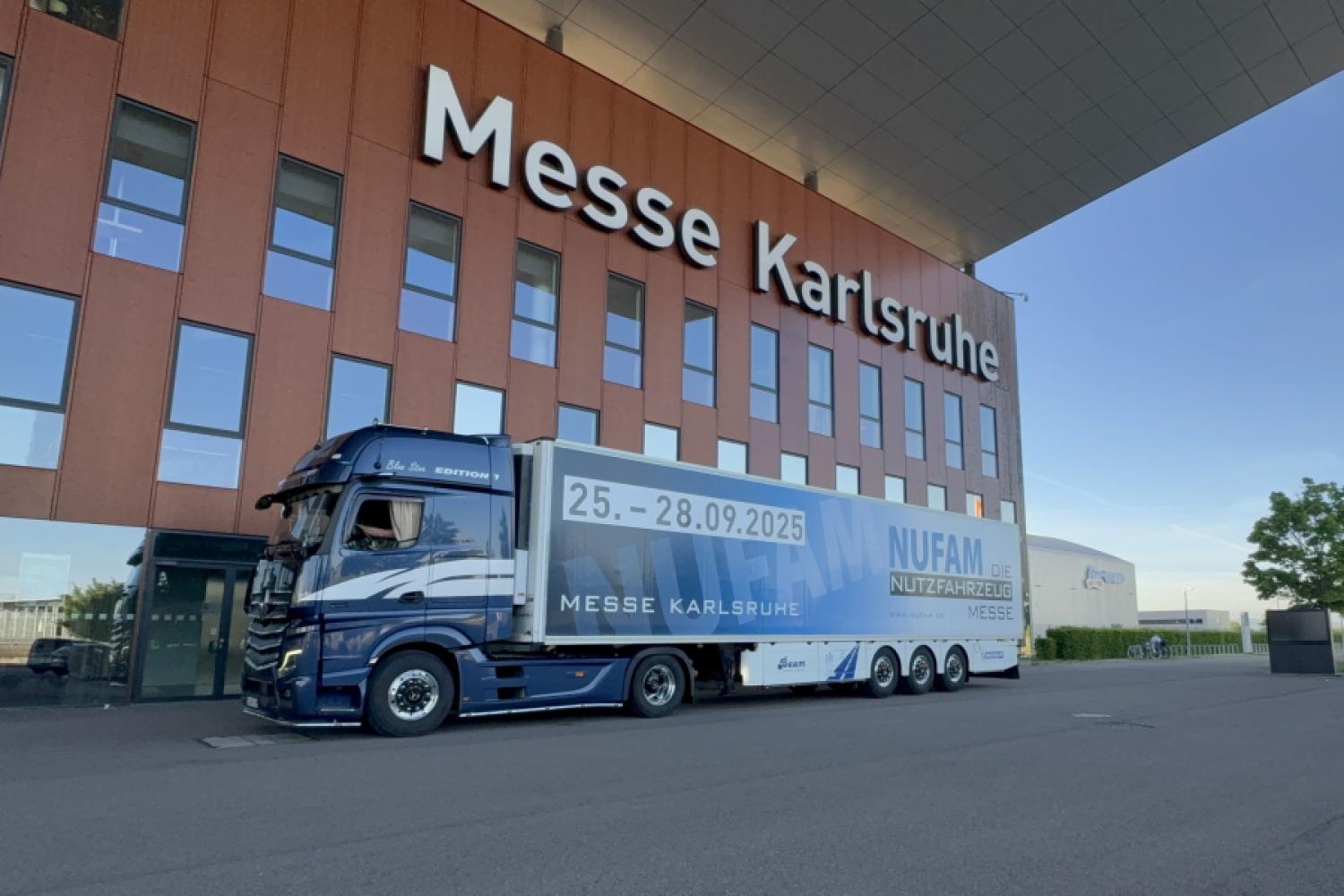Kaufland logistics is constantly on the move to supply the stores daily with fresh goods. To ensure that the complex systems and processes always work reliably together, regular inspection and maintenance are essential. To support the on-site teams in their increasingly complex tasks, Kaufland claims to use more and more innovative tools.
Data Glasses, Drones, Augmented Reality
The three latest examples: By using data glasses, external specialists can directly examine disruptions without having to be physically present. Drones help to keep a close eye on the huge roof areas and kilometers of perimeter fences at the logistics centers. A new app with augmented reality elements simplifies tasks that are not performed regularly, such as retrofitting a tool.
"We continuously examine how we can support our employees with new technologies. In a time when job profiles are constantly evolving, technical aids are an important element of empowerment. The aim of all measures is to support our employees, simplify or accelerate processes," says Daniela Beck, Managing Director of Supply Chain Management
/ Process Management.
According to Kaufland information, the data glasses with headset function are used when technicians at a distribution center need support from another location or external service providers. An on-site technician wearing the data glasses can contact the necessary experts via video conference. Through an integrated camera in the data glasses, conference participants can see live what the technician is focusing on and what he is doing. Despite possible ambient noise, he can always clearly understand all instructions given over the headphones. On a small integrated display on the data glasses, the technician can also view instructions or screenshots with marked points relevant for maintenance, if needed.
According to the retail company, the glasses should resolve disruptions even faster and eliminate the need for external specialists to travel. At the same time, the data glasses also support the transfer of knowledge between different Kaufland locations. The glasses are already in use at two logistics locations.
Easy Inspection of Roof Surfaces
A safety-relevant but also time-intensive task is
the regular inspection of roof surfaces, photovoltaic systems, or perimeter fences at our logistics locations. In Osterfeld and Möckmühl, as well as in Wola, Poland, drones are used for this purpose. The rollout to additional locations is currently under review.
From Snowdrifts to Storm Damage
Möckmühl, the largest of the three distribution centers, for example, has a roof area of almost 120,000 square meters, including photovoltaic systems. These are regularly inspected for damage using the thermal imaging function of drones. In most cases, these cannot be detected with normal optical recordings. Depending on the weather conditions, the teams also use drones to check the roofs and buildings for snowdrifts or storm damage and can quickly take necessary repair measures if needed. The fence surrounding the 450,000 square meter site is over three kilometers long and is regularly checked by drone for damage or cracks.
At the meat processing plants, Kaufland teams have recently started using a platform from the start-up GiriAR to create and apply digital instructions. It is
particularly suitable for tasks that are not performed regularly in everyday work. The logistics colleagues have intensively accompanied the proof of concept and are working on initial use cases for possible implementation.
Instructions via Image and Graphics
For example, if a tool needs to be retrofitted or repaired, employees can follow a step-by-step guide on a tablet or production PC. The guide contains videos and images, complemented by augmented reality elements such as directional arrows and graphic symbols. Voice elements are not necessary, which Kaufland considers clearly advantageous in internationally staffed teams.
As a Supplement
As part of a pilot project, it was first tested how the instructions could be optimally set up and designed. Subsequently, the project team defined topics that are relevant to the platform across locations and assigned the creation of the instructions to the participating locations. This ensures that the instructions are used at multiple locations and are not created multiple times. According to Kaufland, the platform complements existing documented work instructions and safety training.
